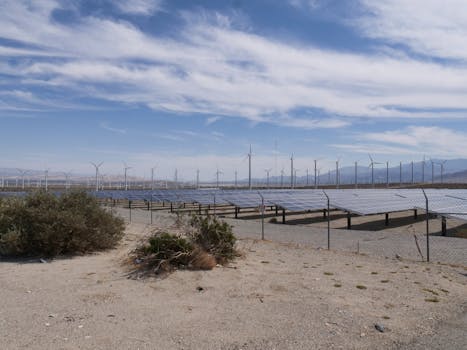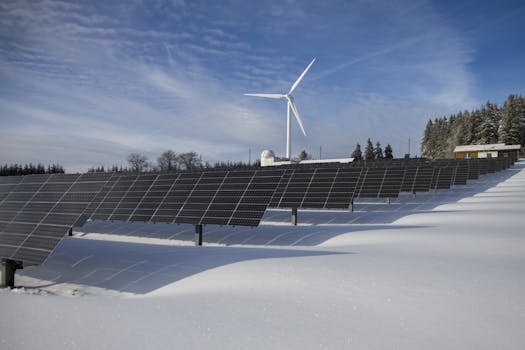
Introduction to Breakthroughs in Renewable Energy

Breakthroughs in renewable energy technology are crucial for achieving sustainability goals. As the world faces increasing challenges from climate change, innovative solutions are emerging to harness natural resources more efficiently. This article delves into the latest advancements in renewable energy technologies and their implications for a sustainable future.
Advancements in Solar Energy

Solar energy has seen remarkable advancements in technology, making it more accessible and efficient. New photovoltaic materials, such as perovskite solar cells, offer higher efficiency rates compared to traditional silicon cells. These materials are cheaper to produce and can be integrated into various surfaces, including windows and building materials.
Moreover, the deployment of solar energy storage systems, such as batteries, allows for better energy management. This ensures that solar power can be harnessed even when the sun isn’t shining, providing a reliable energy source for households and businesses.
Wind Energy Innovations

Wind energy technology has also evolved significantly. The development of larger, more efficient wind turbines has increased energy output while reducing costs. Floating wind farms are becoming a reality, allowing for installations in deeper waters where wind speeds are higher and more consistent.
Additionally, advancements in turbine design and materials have improved durability and reduced maintenance costs, making wind energy a more viable option for large-scale energy production.
Hydrogen as a Clean Fuel Source

Hydrogen energy is gaining traction as a clean fuel alternative. Recent breakthroughs in electrolyzer technology have made hydrogen production from renewable sources more cost-effective. Green hydrogen, produced using renewable energy, has the potential to decarbonize sectors that are hard to electrify, such as heavy industry and transportation.
Hydrogen fuel cells are also being integrated into vehicles, providing a zero-emission alternative to fossil fuels. As infrastructure for hydrogen refueling expands, its adoption is expected to grow significantly.
Energy Efficiency and Smart Grids

In addition to producing renewable energy, improving energy efficiency is vital for sustainability. Smart grid technology allows for better monitoring and management of energy consumption. This technology enables consumers to optimize their energy use and reduces waste.
Energy-efficient appliances and building designs further contribute to sustainability efforts by minimizing energy consumption in homes and businesses.
Conclusion

Breakthroughs in renewable energy technology are paving the way for a sustainable future. Innovations in solar, wind, hydrogen, and energy efficiency are critical for addressing climate change and reducing our reliance on fossil fuels. As these technologies continue to evolve, they promise to create a cleaner, more sustainable world for generations to come.






